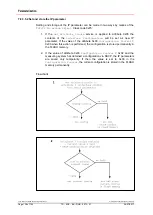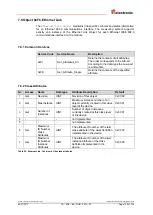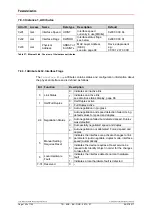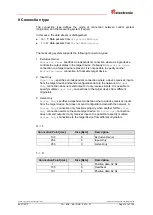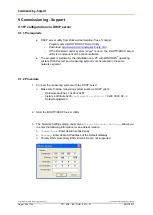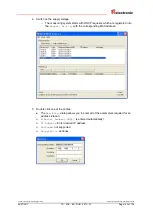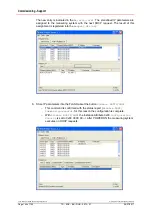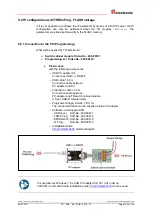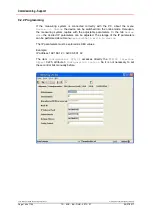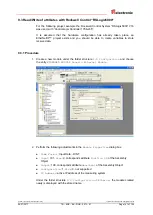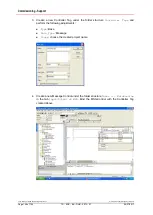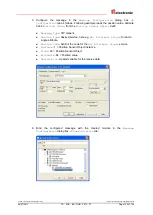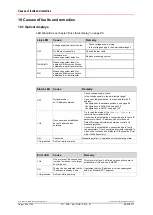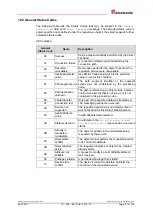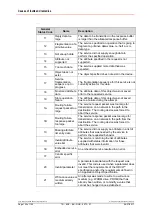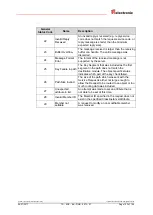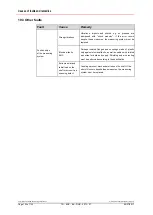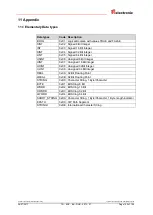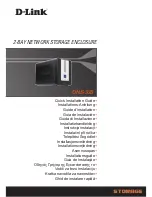
Causes of faults and remedies
TR-Electronic GmbH 2008, All Rights Reserved
Printed in the Federal Republic of Germany
Page 152 of 155
TR - ECE - BA - DGB - 0073 - 07
06/27/2017
General
Status Code
Name
Description
11
Reply data too
large
The data to be transmitted in the response buffer
is larger than the allocated response buffer.
12
Fragmentation of a
primitive value
The service specified an operation that is going to
fragment a primitive data value, i.e. half a
REAL
data type.
13
Not enough data
The service did not supply enough data to
perform the specified operation.
14
Attribute not
supported
The attribute specified in the request is not
supported.
15
Too much data
The service supplied more data than was
expected.
16
Object does not
exist
The object specified does not exist in the device.
17
Service
fragmentation
sequence not in
progress
The fragmentation sequence for this service is not
currently active for this data.
18
No stored attribute
data
The attribute data of this object was not saved
prior to the requested service.
19
Store operation
failure
The attribute data of this object was not saved
due to a failure during the attempt.
1A
Routing failure,
request packet too
large
The service request packet was too large for
transmission on a network in the path to the
destination. The routing device was forced to
abort the service.
1B
Routing failure,
response packet
too large
The service response packet was too large for
transmission on a network in the path from the
destination. The routing device was forced to
abort the service.
1C
Missing attribute
list entry data
The service did not supply an attribute in a list of
attributes that was needed by the service to
perform the requested behavior.
1D
Invalid attribute
value list
The service is returning the list of attributes
supplied with status information for those
attributes that were invalid.
1E
Embedded service
error
An embedded service resulted in an error.
1F
Vendor specific
error
-
20
Invalid parameter
A parameter associated with the request was
invalid. This code is used when a parameter does
not meet the requirements of the ODVA
™
specification and/or the requirements defined in
an Application Object Specification.
21
Write-once value or
medium already
written
An attempt was made to write to a write-once
medium (e.g. WORM drive, PROM) that has
already been written, or to modify a value that
cannot be changed once established.

